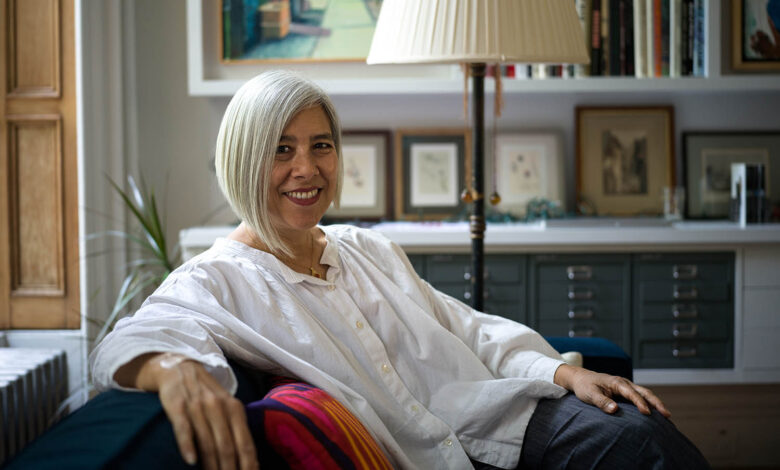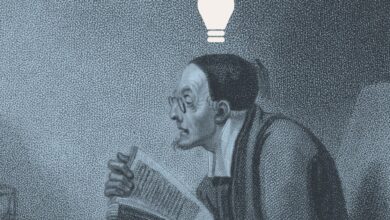‘I meant to write a novella. I crashingly fai…

Photography by Maria Spann
Novelist Susan Choi, 56, was born in Indiana to a Korean father and Russian-Jewish mother. After working as a fact-checker at The New Yorker, she made her debut with The Foreign Student (1998), going on to win America’s National Book Award for Trust Exercise (2019), a slippery narrative about sexual abuse in a drama class. She lives in Brooklyn and her new book, Flashlight, begins when an academic vanishes from a Japanese beach in 1978.
What led you to write a novel exploring the shared history between the US, Japan and the Koreas?
It came out of my sense that I’d never really delved sufficiently into the decades leading up to the Korean war – the event that precipitated my father’s immigration to the US. That war was at the centre of my first book, which I wrote in my 20s; by that time, I’d been an adult long enough to share some beers with my dad and get him talking in a way he’d never spoken to me before. But I felt my own relationship with history was being distorted by my preoccupation with understanding him better. I’d done all this research yet understood the war’s origins and consequences only in terms of the second world war and the cold war. Flashlight is a result of realising how superficial that was. To really understand my father involved going deeper into history.
Did you have a model for the book?
Jenny Erpenbeck’s brilliant novella, Visitation, which captures enormous events of 20th-century Germany in extremely fragmentary chunks of narration that challenge the reader to orient themselves. I had in mind a short book like that, but it became completely different and very long!
What brought about that change?
I had set up an enormous contradiction for myself. What’s so amazing about Visitation is that Erpenbeck makes the Holocaust feel like something you’ve never read about before. But the average reader likely knows that its background is the Holocaust, whereas the historical events I wanted to draw on are very little known [in the US]. That doesn’t mean they’re unknown. I did an event with the writer Viet Thanh Nguyen and I said: “Maybe we can try to avoid giving away the [story’s] big reveal.” He said: “What reveal? I knew right away what happened.” I said: “Well, I know you did, because your grasp of east Asian history is pretty complete! But that’s not typical of the American reader.”
As well as geopolitics, the novel lingers on intimate details of day-to-day life, from sex to illness.
As a reader, I’m always drawn to that. I often think of Middlemarch, one of my favourite books, as an exemplar of how to write about historical forces. Eliot’s attention is all-encompassing – she has this higher structural sense but keeps you in the warm embers of the everyday.
Flashlight has three main characters. Which was the hardest to write?
Definitely Serk [the academic], who emerged from my interest in my father’s life, although he’s almost the inverse of him. One of the things that fascinated me about my father’s experience was that his consciousness of his own identity had been disrupted as a little boy. He was a Korean in Korea, but Korea had been made a Japanese colony [1910–1945], so he answered to a Japanese name and was taught in Japanese and sang Japanese songs. Around the age of six, he was made to realise that he wasn’t Japanese – it wasn’t clear [to him] what he was. He couldn’t be induced to talk about this very much, but I observed in him a tumultuous ambivalence about his origins all his life. Raising me, he was insistent that I shouldn’t be exposed to Korean culture or language, as if it were a pathogen. That really prompted my interest in this corner of history.
What was the last great novel that you read?
Fifteen Dogs by the Canadian writer André Alexis, a huge discovery for me. I found it enthralling and totally unexpected. I don’t even want to describe it because I think readers should just pick it up.
You’re a professor of creative writing at Johns Hopkins University in Baltimore, Maryland. Is there a particular book you return to in your teaching?
Although I’ve crashingly failed with Flashlight, I still dream hilariously of writing a novella someday. I just love short narratives – to be able to do so much in so little space is much harder than doing a lot in a lot of space. I’ve taught a novella class many times. Very often Visitation is included, as is Muriel Spark’s The Prime of Miss Jean Brodie – another of my favourite books. In the US, there’s this idea that characters should be relatable, which usually means likable. The great thing about Spark, especially in Jean Brodie, is that she frees you from that infantile desire to affirm your own goodness by identifying with characters who are good. There’s no moral centre. The girls are awful. The men are awful. Jean Brodie is terrible. And the writing is terrific.
What kind of reader were you as a child?
I was extremely unathletic and I was an only child, so I read a lot: Roald Dahl, CS Lewis, Susan Cooper, Mary Norton… my childhood reading was exceedingly British! I remember reading The Borrowers and tossing it aside to write my own stories about tiny people. My people were smaller. I thought that was originality, to take the idea but size down the people even more.
Where do you prefer to write?
The dining table I’m sitting at right now. I always work here – we can never eat because it always has paper strewn all over it. I even had a whole cabinet built in this room to put the paper into, and the paper is still on the table.
Flashlight is published by Jonathan Cape (£20). Order a copy from The Observer Shop for £18.20. Delivery charges may apply
Source link


